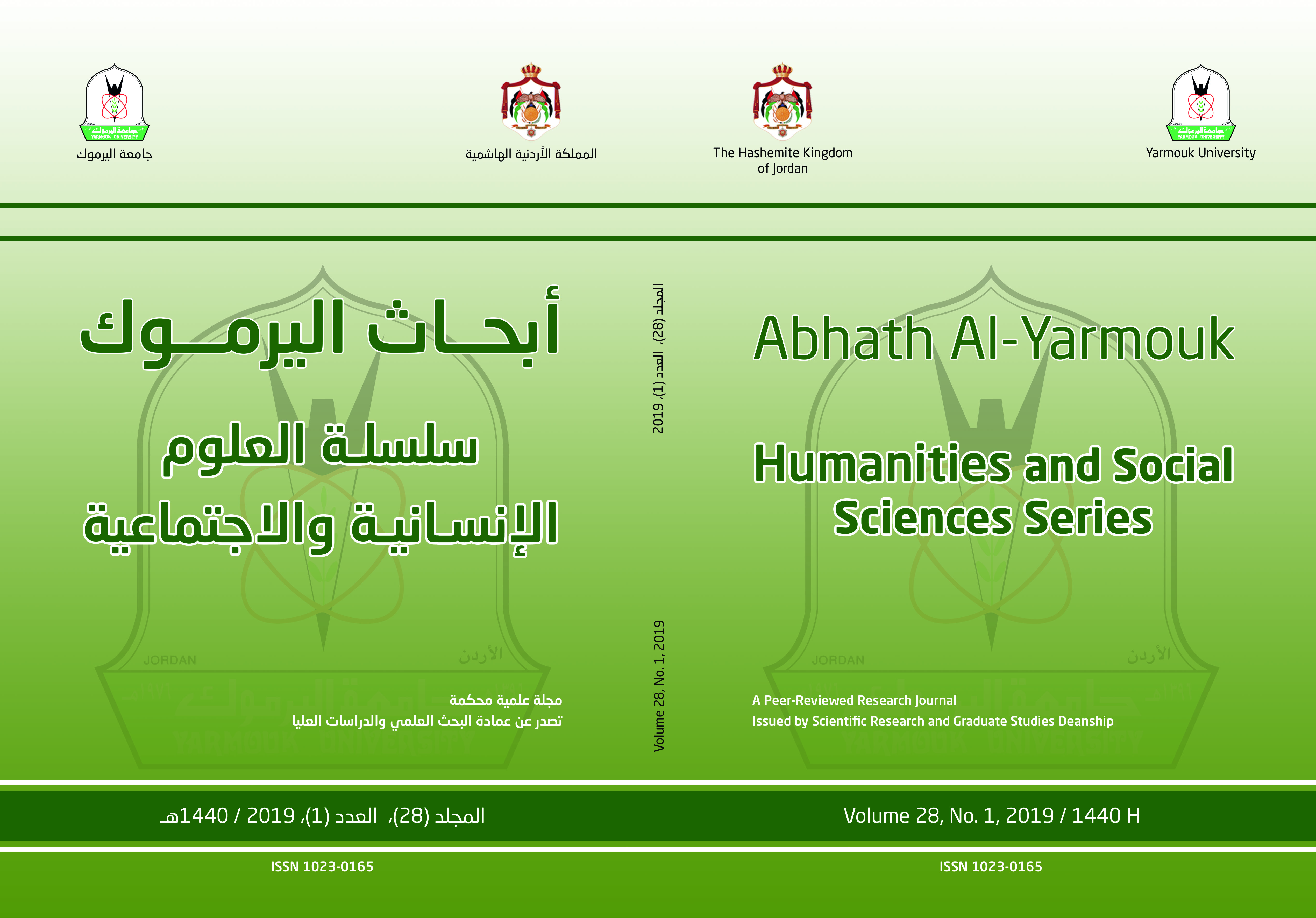The Counter-Sublime and the Modernist poem”
The poet’s relationship to his predecessors in the “Qafiyah min ajl al-mu'allaqat”
Keywords:
modernist poem, the anxiety of influence, poetic traditions, Qafiyah min ajl al-mu'allaqatAbstract
This paper explores the rediscovery of the modernist poets’ relationship to their great predecessors. The modernist poem in Arabic poetry appears problematic at the vision and form levels in their relations to traditions of Arabic poetry. This relationship varies in its appearance and concealment among poets, but it never ceases.
The paper depends on the premise that modern poets seek to place themselves among great poets. This happens due to their feeling of being late and desire to sublime this relationship beyond the state of “the anxiety of influence.” It employs critical theories that address this relationship, particularly what was presented by Harold Bloom.
The discussion is divided into two sections: theoretical, in which the theory is clarified, and practical, in which the idea is enriched by studying the case of Mahmoud Darwish’s poem “Qafiyah min ajl al-mu'allaqat.”
The study concludes that modernist poets feel the need to prove their connection to the traditions of Arabic poetry. They insist on establishing a link between their poetics and what preceded them. This is to protect their poetics and place themselves among the group of great poets. Analyzing the poem “Qafiyah min ajl al-mu'allaqat” reveals that it summarizes this relationship. It presents Mahmoud Darwish’s poetic biography and his experience on three levels: the personal (historical), the intellectual, and the poetic, and that Darwish elevates everything that he saw as a power of his predecessors and in Arabic poetry through al-Mu'allaqat, to transcend his anxiety about perish at the three levels regarding the power of time to achieve a modernist vision.
References
Arabic References:
Adonis (1995), The Book Yesterday Place Now, 1st edition: Dar Al-Saqi, Beirut.
Darwish, Mahmoud (1995), Why You Left the Horse Alone, 1st edition: Riad Al-Rayes, Beirut.
Al-Sayyab (1986), Al-Sayyab’s Prose Book, compiled by: Hassan Al-Gharfi, Al-Jawahir Magazine, Fes.
Al-Sharaa, Ali (2002), Mahmoud Darwish, Poet of Transforming Mirrors, Ministry of Culture, Amman.
Tarawneh, Imad (2016), Mahmoud Darwish’s Story in the Land of Speech, 1st edition: The Arab Expansion, Beirut.
Wazen, Abdo, (2006), Mahmoud Darwish Al-Ghareeb finds himself reading his new works, 1st edition: Beirut, Riad Al-Rayes.
Al-Zahrani, Hatem (11/8/2018), “There must be prose for the Messenger to prevail”: The Prophet and the Poet or Prose and Poetry? A reading of three texts of Arabic poetry,” Hikma Magazine, according to the link: "لا بد من نثرٍ لينتصر الرسولُ": النبي و الشاعر أم النثر والشعر؟ - حاتم الزهراني • مجلة حكمة (hekmah.org).
Translated references:
Bloom, Harold (2019) (A), The Anxiety of Influence, a Theory of Poetry, translated by: Abed Ismail, D.D.: Dar Al-Takween, Damascus.
Bloom, Harold (2019) (B), A Map for Misreading, translated by: Abed Ismail, D.D.: Dar Al-Takween, Damascus.
Bloom, Harold (2020), The Art of Reading Poetry, translated by: Basil Al-Masalmeh, 2nd edition: Dar Al-Takween, Damascus.
Elliot, T. s. (D.T.), Essays on Literary Criticism, translated by: Latifa Al-Zayat, D.T.: Anglo-Egyptian Library.
Freud, Sigmund (1996), Anxiety in Civilization, translated by: George Tarabishi, 4th edition: Dar Al-Tali’ah, Beirut.
Freud, Sigmund, (2017), Instinct and Culture Studies in Psychology, Translated by: Hussein Al-Mawzani, 1st edition: Al-Jamal Publications, Baghdad - Beirut.
Fry, Northrop (2007), “Anatomy of Criticism (A Dialectical Introduction),” Paths in Modern Western Critical Thought, Translated Critical Chapters, Selected and Translated by: Ali Al-Sharaa, 1st edition: Greater Amman Municipality, Amman - Jordan.
Habermas, Jürgen, (2019), The Philosophical Discourse of Modernity, translated by: Hassan Saqr, 1st edition: Dar Al-Hiwar, Lattakia.
Heidegger, Martin, (2012), Being and Time, translated, presented and commented by: Fathi Al-Miskini, reviewed by: Ismail Al-Mussadeq, 1st edition: United New Book House, Beirut.
Nourse, Christopher (1989), Deconstruction Theory and Practice, translated by: Sabri Muhammad Hassan, Dar Al-Marreikh, Riyadh.
Pierre Zema (1417 AH - 1996 AD), Deconstruction, a critical study, Arabization: Osama Al-Hajj, 1st edition: University Foundation for Studies, Publishing and Distribution, Beirut.
Vattimo, Janni (2014), The End of Modernity, Trans.: Najm Bou Fadl, 1st edition: Arab Organization for Translation, Beirut.
English references:
Culler, Jonathan (1986), On Deconstruction, theory and criticism after structuralism, Cornell University Press, Ithaca, New York, second printing.

